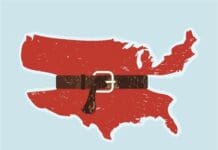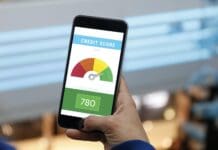New data from the Conference Board, a business research group, reveals that consumer confidence in the United States rose this month, even with the Omicron variant of the coronavirus causing infections to surge around the world. Higher prices as a result of high inflation and global supply chain problems have also seemingly not impacted how consumers have acted or spent money this month. While initial data did suggest that consumers wouldn’t be impacted by the Omicron variant in early December, now analysts have more concrete data to show that the virus really hasn’t yet affected consumer confidence.
According to this data, the consumer confidence index rose to 115.8 — the highest reading since July. Last month, the reading stood at 111.9.
This increase in confidence could have something to do with the holiday shopping season. While some businesses have experienced an issue with low stock, many of the bigger retailers (such as Walmart and Target) came out and expressed that they have no stock issues and plan to do well for the holiday season. Previously, many analysts expressed concern that stores would have low stock because of the global supply chain problems.
However, this hasn’t become a reality for many businesses. Plus, consumers started Christmas shopping earlier this year, which may have helped. As a result, consumers have been able to buy the gifts and items desired. There have been issues with online orders and shipping, though in-store purchases don’t seem to have overwhelmingly been difficult.
This could have helped increase consumer confidence as people shop. However, data from the Conference Board does seem to suggest that while consumers aren’t completely happy with their current conditions, they have great optimism for how things will be in about six months’ time.
Meanwhile, the Omicron variant and high inflation haven’t seemingly been an issue for shoppers, according to the latest data. As the holiday shopping season slows down, this could of course change. Demand will likely slow naturally, though the Omicron variant and higher inflation could cause consumer demand for supplies to slow much more than normal.
Analysts have been waiting to see how the Omicron variant of the coronavirus would impact consumers and how they spend money. Thus far, during the holiday shopping season, the virus hasn’t seemed to put too much negative influence on how Americans are deciding to spend their money. However, if cases continue to surge as a result of this highly contagious variant, things could always change.
High inflation, meanwhile, continues to be an issue. While gas prices have gone down in the past few weeks, it does appear as if high inflation will stay around at this level for a bit before hopefully moderating. As a result, this higher inflation could later on impact how consumers spend their money willingly at businesses.
While consumer confidence is still high — which is a good thing, as it shows that people are confident in spending money and putting back into the economy — the Omicron variant and high inflation could eventually begin to affect consumers, especially once the holiday spirit dies down.













